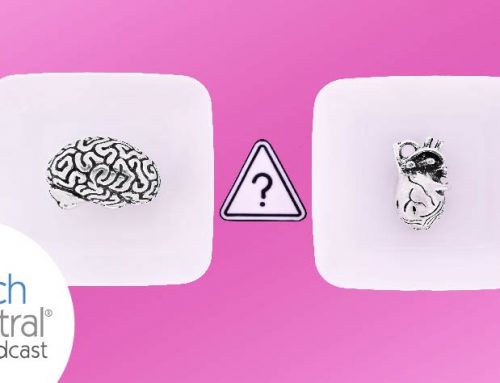Bipolar disorder can take a toll on relationships, but this can be prevented by following tips such as trusting your partner and putting yourself first.
Anyone who has followed my work long enough knows that my wife isn’t angry at the fact that I have a bipolar diagnosis. She doesn’t celebrate it but she lacks the stereotypical sadness and/or resentment that many family members feel toward loved ones living with mental health conditions.
People are interested in knowing how we are able to achieve a strong, loving, and stable marriage when so many other couples experience problems.
It’s no surprise that people are curious. A study conducted in 2011 shows that the divorce rate increases between 20 to 80 percent for couples where one partner suffers from mental illness. (National Center for Biotechnology Information) This increase is in addition to the already high rates our society experiences.
It’s easy to see how a marriage suffers under the weight of the symptoms of mental illness. For example, when one spouse is suffering from depression, the other spouse is often forced to take on additional parental and family responsibilities that would normally be shared between the two. This extra workload causes stress, which leads to conflict, which leads to resentment.
In the specific case of bipolar disorder, the couple is often left struggling with the crisis brought on by the sufferer’s manic episodes, such as infidelity, excessive spending, or taking dangerous risks. All this is in addition to the issues already brought on by depression.
Tips for the Partner Who Does NOT Have Bipolar Disorder
In general, family members don’t want to feel animosity toward the people they love. As stated above, in the case of spouses, the risk is much greater that the relationship will end because of this resentment. Parents are unlikely to abandon their children in the same way a spouse can – and often does.
I could write a book on the subject of living with someone who has bipolar disorder, so the lists below are in no way comprehensive.
Educate yourself. Don’t just listen to what your partner has to say about living with bipolar disorder. Take a class, join a support group, and/or read a book. Learn as much as you can so that you are in a good position to appropriately support them.
Set appropriate boundaries. Just because a person has any illness does not give them the right to treat you however they want.
Put yourself first. It’s important that you maintain your own health. If you don’t take care of yourself, you can’t possibly provide good care to someone else. Don’t be afraid to take a break.
Forgive – and mean it. People living with bipolar disorder make many mistakes that are driven almost entirely by their illness. If you want your relationship to flourish, you must forgive and move forward. No relationship can survive if past issues are constantly being rehashed.
Tips for the Partner Who DOES Have Bipolar Disorder
I’ve been married three times and each one represents a different period in my life:
With wife #1, I was completely unaware that I was mentally ill and therefore untreated.
With wife #2, I was aware, but at the beginning of my journey toward recovery. I lacked many coping skills and hadn’t acclimated to medication yet.
With wife #3, I am in treatment, on medications that work well, and am in full recovery with bipolar disorder. In other words, I spend more time living my life than I do managing bipolar disorder. It’s no surprise that this is my best marriage; I’m in the best place to be a good husband.
- Apologize – and mean it. I can’t stress enough that just because it’s not our fault when something bipolar related happens, it doesn’t make it our partner’s fault. Make sure they know that you aren’t blaming them and make amends whenever necessary.
- Make them part of your treatment team. If we exclude our partners from our treatment team, we are showing them a lack of trust and opening the door for misunderstandings. Also, working together can improve the outcomes – and that is good for both of you.
- Don’t hide your symptoms. If you have to hide your symptoms from your partner, something is already wrong. People living with bipolar disorder will sometimes be symptomatic. Your partner should already understand this, and if they don’t, it’s time to educate them.
Trust your partner. If they express concern about your mental wellbeing, believe them. They have no motivation to lie. (If they do, then this isn’t the article you need to be reading.) Our partners know us better than anyone, so think of them as an early warning system. Even if they are wrong about how you are feeling, use it as a learning opportunity. Working with them, you will help them become a better part of your support system.
Bipolar or Not – The Fundamentals of Long-Term Relationships Apply to All
Whether or not one partner has bipolar disorder doesn’t change the fundamentals. Long-term relationships are about sharing your life with another person. We lean on our partners and allow them to lean on us.
Many couples fall into the rut of only pointing out each other’s faults. As important as it is to communicate to each other that things aren’t going well, it’s equally (if not more) important to celebrate together. Make it a goal to spend as much time celebrating your lives together as you do managing your lives with bipolar disorder and you should be just fine.
This article originally appeared on BPHope.com as “Why My Spouse Doesn’t Resent Me for Having Bipolar Disorder“









Thank you so much for sharing everything you do
Thank you so much! 🙂 I appreciate you a lot. ~Gabe
Gabe – Thank you for this post. It truly helped me put into perspective my role as a parent. I look forward to hearing and meeting you at the 2018 Evening of Hope.
I look forward to meeting you, too! 🙂